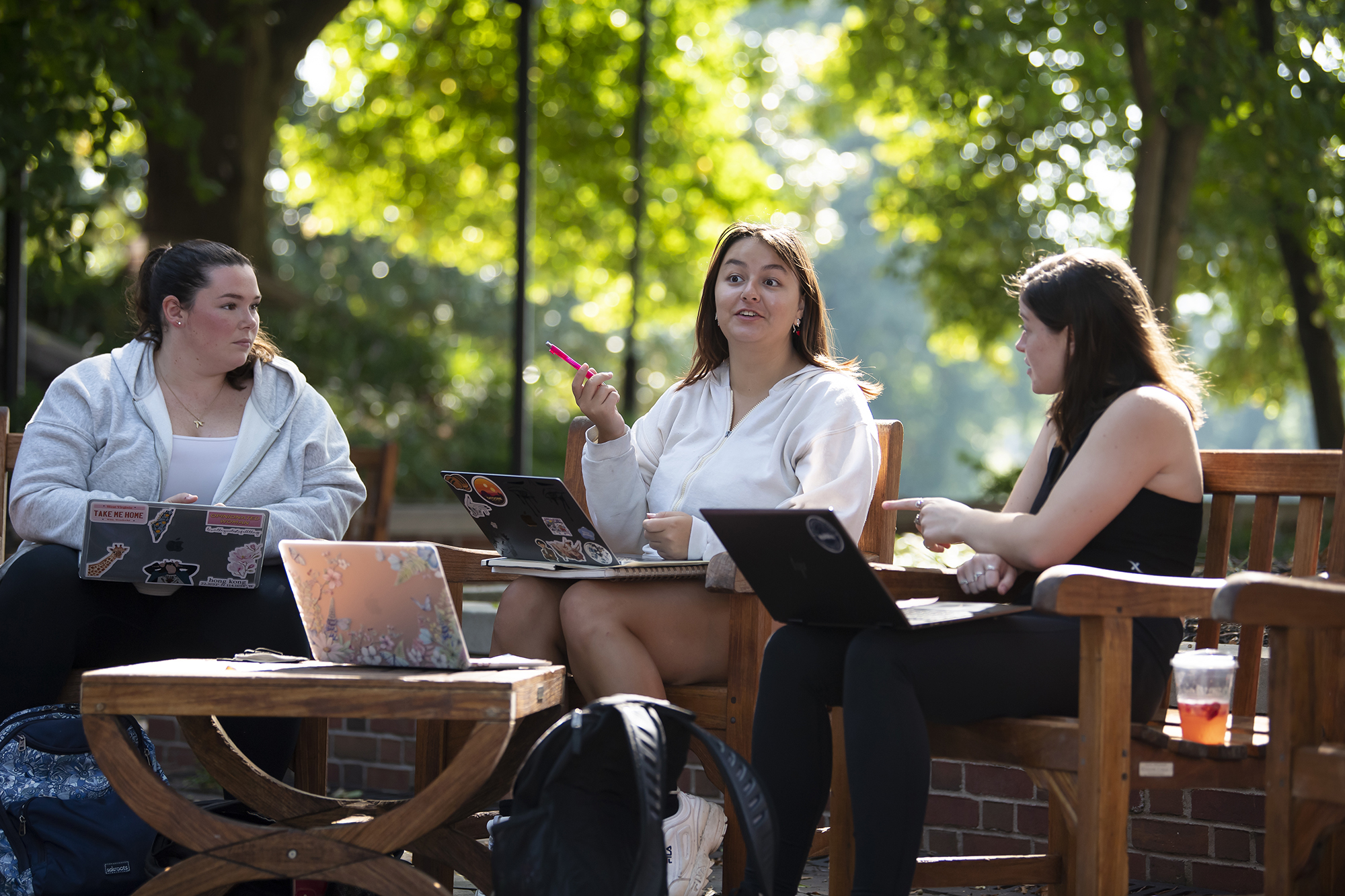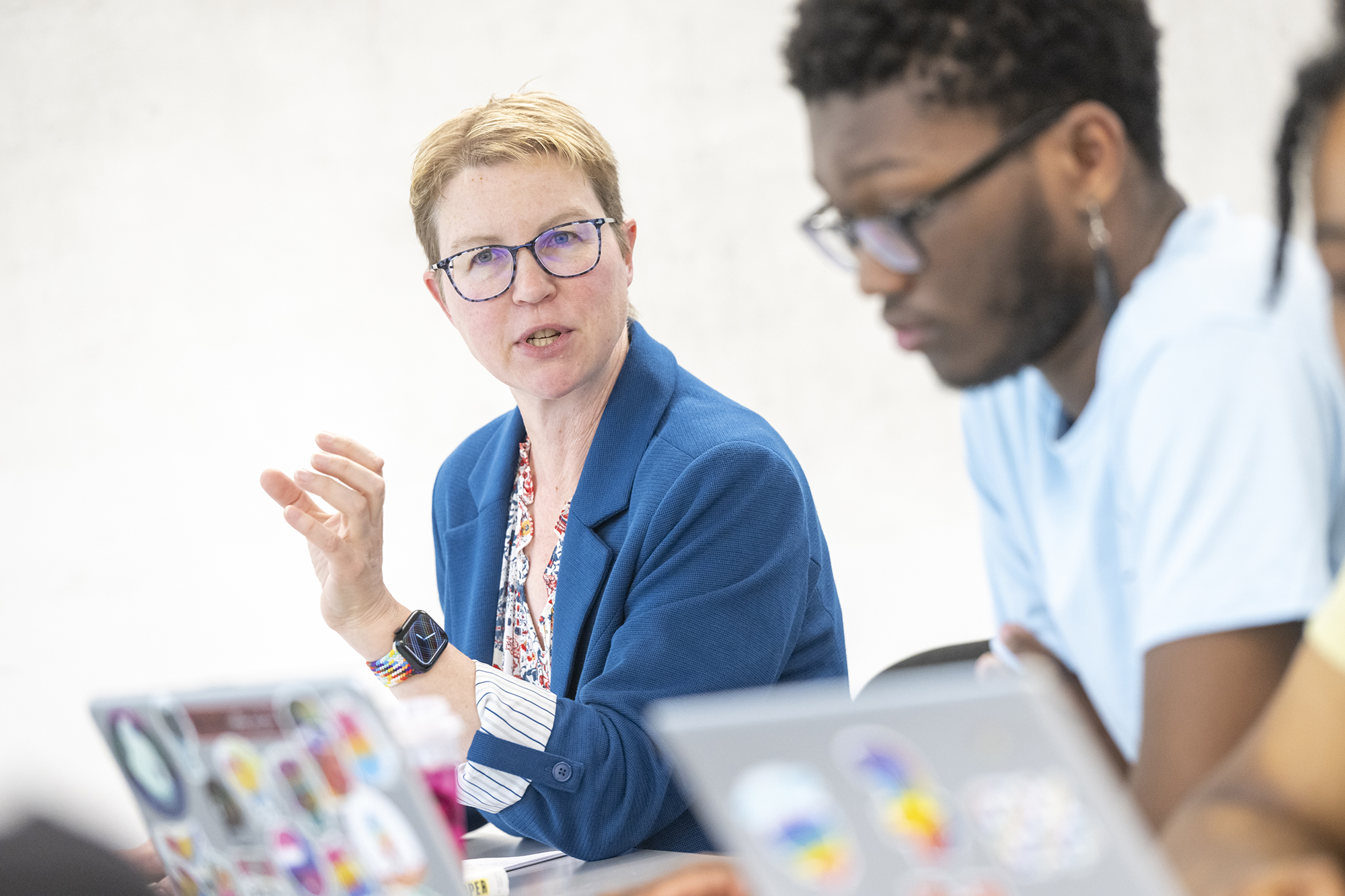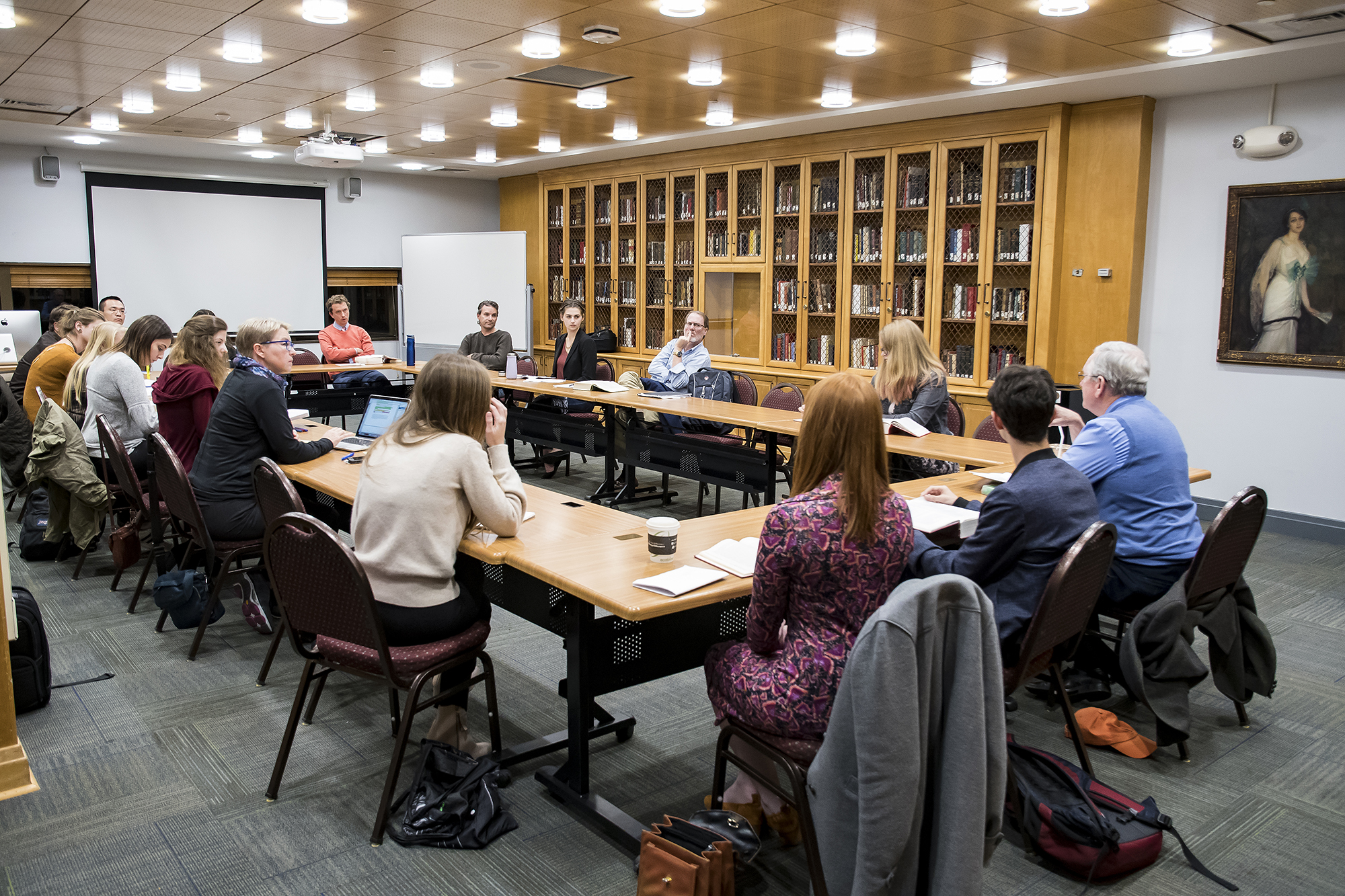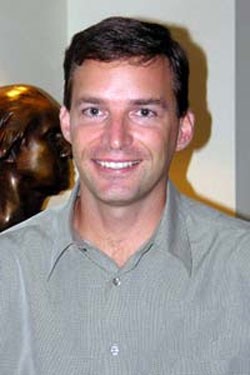
Department of Philosophy and Religion
Philosophy — traditionally at the center of the liberal arts — asks some of the most difficult and searching questions about human existence, the nature of the universe, right and wrong in human conduct, and the basis of our social and political arrangements.
In so doing, it gives the mind leeway to doubt, analyze, criticize, and create. Philosophy by nature tends not to generate textbook answers. It can aid in putting questions on the nature of oneself, life, and reality into coherent and nuanced perspectives.
We do not just prepare you for a job. Philosophy and religion scholars learn to exercise good judgment and live life well in whatever they do. As a result, our graduates go into dozens of professions, equipped to create a life of purpose and interest.
The department currently offers a major and minor in philosophy as well as a minor in religion. The courses of the Department of Philosophy and Religion have four main purposes:
- To acquaint the student with some of the great philosophical questions of the past and present and with leading attempts to answer them
- To exhibit the connections between philosophy and such related areas as art, business, law, literature, medicine, science, religion, and the environment
- To develop the student’s capacities for clear thinking, critical analysis, and effective articulation/expression
- To provide the basis for reflecting on right versus wrong and good versus evil in the present-day world
These aims are pursued in the atmosphere of diverse philosophical interests and approaches found among the staff of the department. At the same time, faculty are mindful of complementarities among these approaches in bringing students to the art of inquiry. Typically, students also bring varied concerns to their own explorations in philosophy and move on to careers in many different fields.

Philosophy Major
Majoring in philosophy at Washington College will not train you for any one particular career, but instead it will empower you to flourish in whatever you decide to pursue after graduation because of the critical thinking and writing skills you will develop here.

Institute for Religion, Politics, and Culture
The Institute for Religion, Politics, and Culture (IRPC) is dedicated to the rigorous study of religion’s influence on American and world history and its contemporary importance for cultural and political life. The Institute also explores a range of pressing issues facing contemporary society and the enduring value of America’s founding principles.
